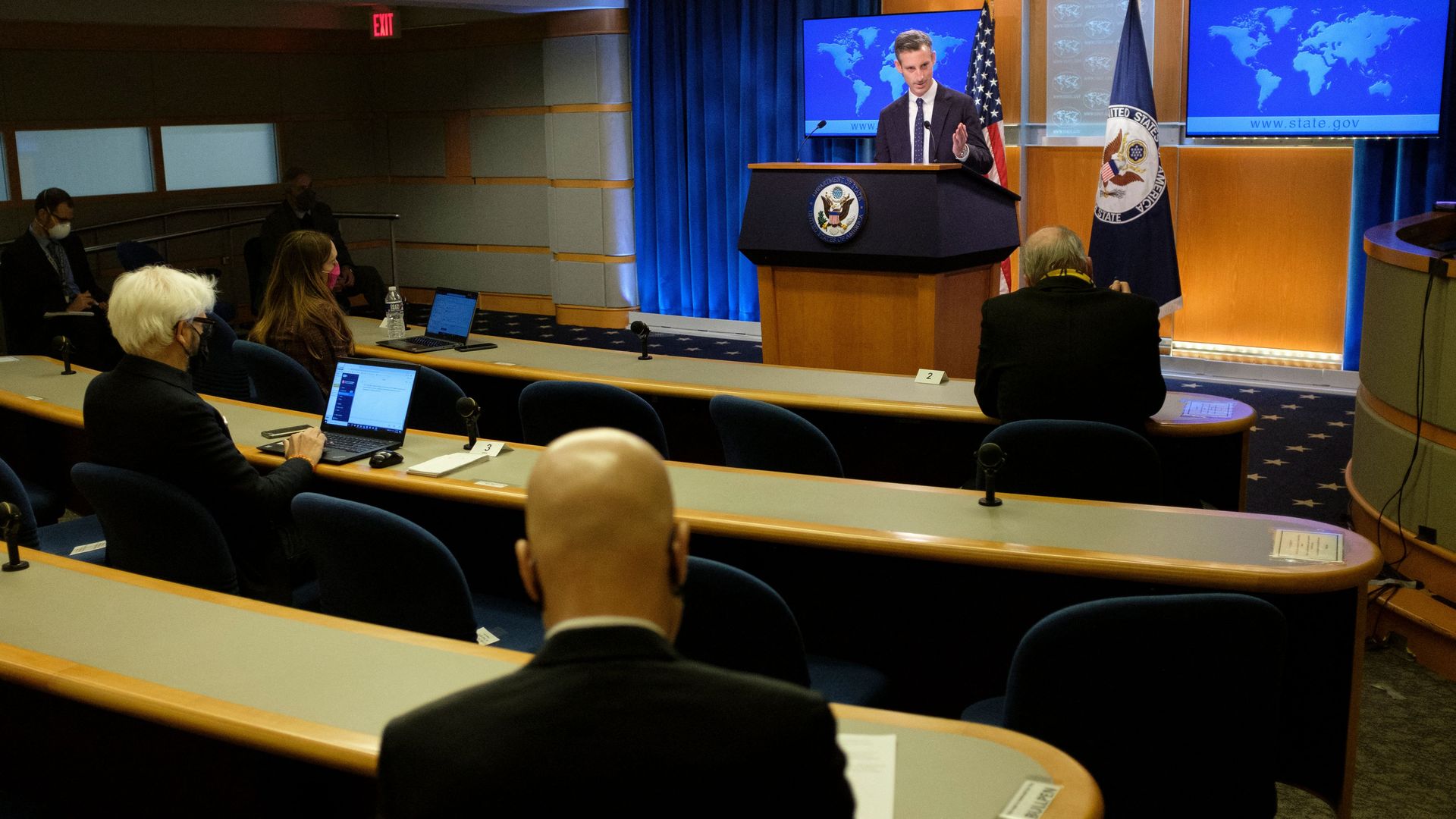U.S. bets on public exposure to undercut Russian disinformation
Add Axios as your preferred source to
see more of our stories on Google.

State Department spokesman Ned Price spoke on Monday with Matt Lee of the Associated Press. Photo: Mandel Ngan/Pool/AFP via Getty Images
The U.S. government is deploying a novel strategy to preempt Russian disinformation, publicly accusing the country of specific plots to fabricate a pretext for invading Ukraine.
Why it matters: The statements, made twice during the past three weeks, reflect lessons learned from the Obama administration's handling of Russia's 2014 invasion of Crimea. That involved many of the same players now serving in senior roles under President Biden.
Driving the news: The latest allegations, based on declassified intelligence, involve purported Russian plans to fabricate an attack by Ukrainian forces and disseminate a graphic "propaganda video" showing Russian casualties and fake mourners.
- "We are publicizing it in the hopes that it dissuades Russia from its intended course of action," a senior administration official told Axios.
- Last month, the U.S. accused Russia of prepositioning a group of operatives to conduct a "false-flag" operation in eastern Ukraine.
- The British government also claimed to have exposed a Kremlin plot to install a pro-Russian puppet government in Ukraine — allegations reportedly based on intelligence collected and declassified by the U.S.
The big picture: Burned in 2014 by Russian President Vladimir Putin, top Biden administration officials are determined not to get caught on their back foot in the information war — or on deterrence.
- "We are prepared to implement sanctions with massive consequences that were not considered in 2014," a senior Biden official said in a recent briefing.
- "That means the gradualism of the past is out, and this time we’ll start at the top of the escalation ladder and stay there."
Between the lines: Despite's Russia long history of weaponizing disinformation and manufacturing casus belli, the Biden administration has not provided evidence to back up the explosive claims it's made during the past several weeks.
- State Department spokesman Ned Price got into a heated exchange with AP reporter Matt Lee on Thursday when pressed about the specific intelligence the U.S. has to back up the allegations.
- Price cited the need to protect "sources and methods" and told Lee that he was welcome to "find solace in information that the Russians are putting out" if he doubted the "credibility" of the U.S. and British governments.
- White House press secretary Jen Psaki also bristled on Thursday when a reporter asked her about evidence the leader of ISIS had blown up his own house during a raid by U.S. forces, as the administration had described.
Flashback: Psaki, undersecretary of State for political affairs Victoria Nuland and principal deputy national security adviser Jonathan Finer all were involved in the 2014 Crimea crisis while working in the State Department.
